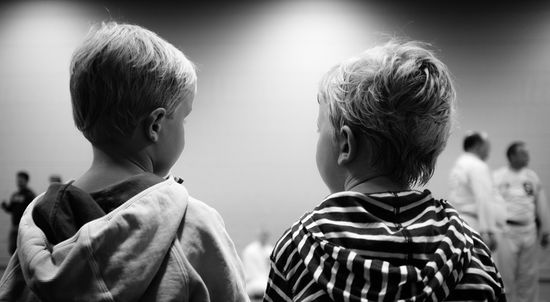The Most Important Thing to Know About Early Education Funding: Think Locally
/
It’s been a good year for early childhood education funding around the country, as this grantmaking space keeps heating up. Even more specifically, as we cover grant cycles in a variety of places, we're seeing lots of attention to early math and literacy as top issues for funders.
To be sure, there are some major national funders working on early childhood education, like Kellogg and the PNC Foundation. Overall, though, this is a grantmaking area that tends to be locally focused. Every major metro area has foundations that want to see kids in their community do well in life and put grants behind this goal. Local funders often see the unique needs of the children who grow up in their area and are in close touch with the nonprofits that are positioned to help them.
Take the Southwest, for example. The Helios Education Foundation has been giving a lot of support to Arizona pre-K groups that focus on two-way immersion and English/Spanish literacy. Over 43 percent of children in Arizona are Hispanic, and many of them come from homes where Spanish is the primary language. Dual-language programs are a bit hit in the Southwest these days, significantly more so than in other major metropolitan areas.
Read:Helios' Education Initiatives Still Going Strong with Pre-College and Pre-K Targets
Meanwhile, in Philadelphia, the William Penn Foundation has really been driving the local early education efforts. Penn recently announced a new $15 million commitment to improve early education facilities in the city for low-income families. There’s been a big push for pre-K access and universal pre-K in Philadelphia lately, so local grantmakers are really playing into these concepts to get more kids into classroom seats. By January 2021, Penn wants to see 1,500 more early childhood education seats in high-quality institutions to make room for low-income families.
Read: Early Childhood Education Is Also Moving in Philly, With Some Funding Muscle
And in Chicago, the McCormick Foundation has long been a big early education leader. Through its fund partner, Chicago Tribune Charities, McCormick recently donated to the Children’s Literacy Initiative to benefit schools in the Little Village neighborhood. Early literacy has been getting perhaps the most attention among funders in Chicago lately, and reading proficiency by third grade is a big cause around town.
Read: McCormick Foundation Partners with the Chicago Tribune for Children's Literacy
In the Bay Area, the Kenneth Rainin Foundation has emerged as a major new player on early childhood funding. In the Northwest, the Gates Foundation is doing more work in this area. In New York, philanthropic dollars played a role in filling some of the funding gaps that emerged amid Mayor Bill de Blasio's pre-K drive. Meanwhile, various funders in the city have long paid attention to this issue.
Read: A Funder Arrives on the Early Childhood Education Scene in a Very Big Way
Of course, this is just a quick sampling of what’s going on in the early education scene around the country, but we can’t help but notice that even national and global funders tend to stick closer to home when it comes to this funding area. In IP's guide to early childhood funding, we break down the funders locally to reflect that—which we don't do with any other grantmaking area.
Related: Funding for Early Childhood Education
An increasing number of community foundations, private family funders, and individual donors are jumping on the early education bandwagon amid growing attention to inequality. If local grantmakers in your community aren’t paying attention to early education yet, just stay tuned. It might only be a matter of time before funding for three- to five-year olds emerges on the priority list.








